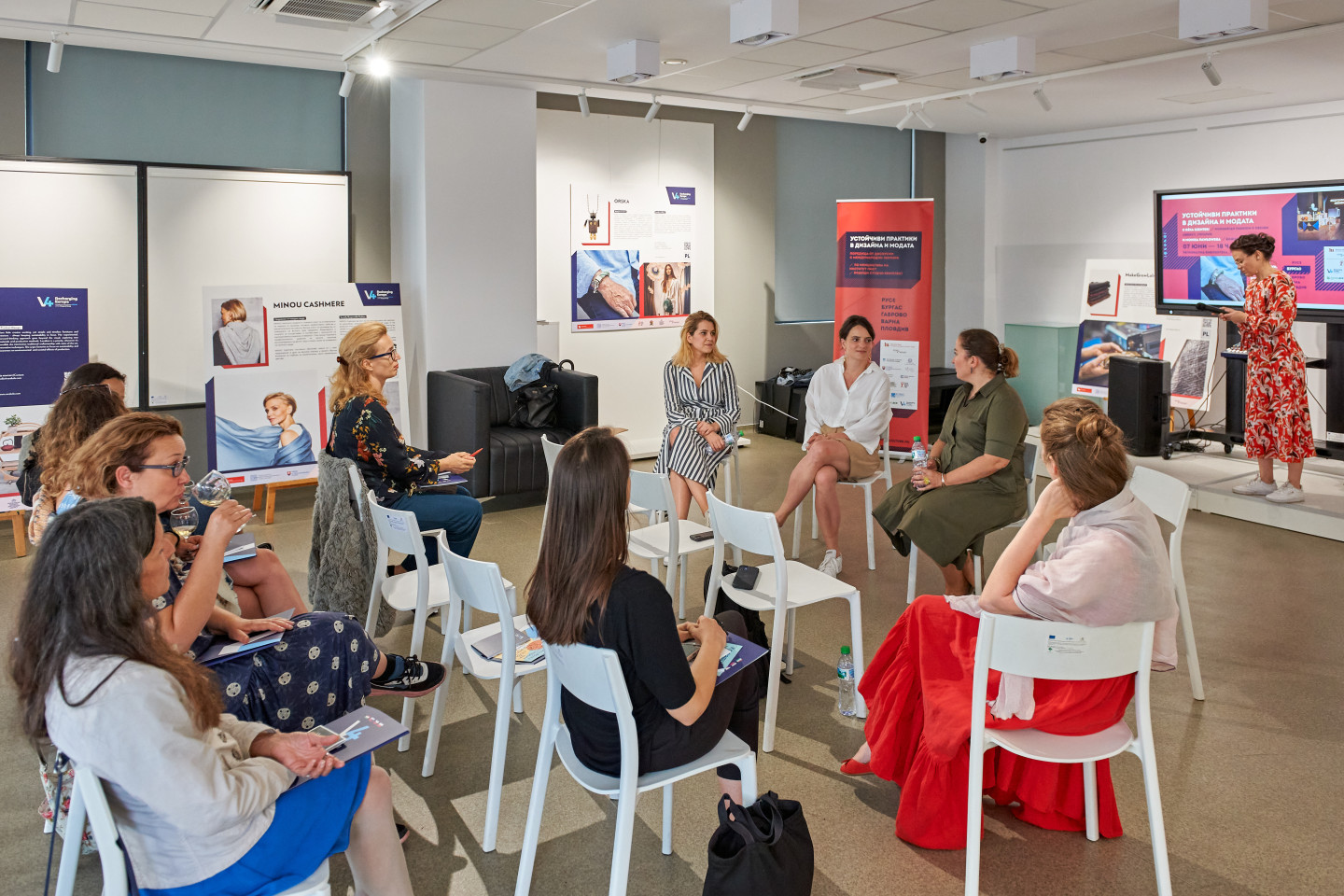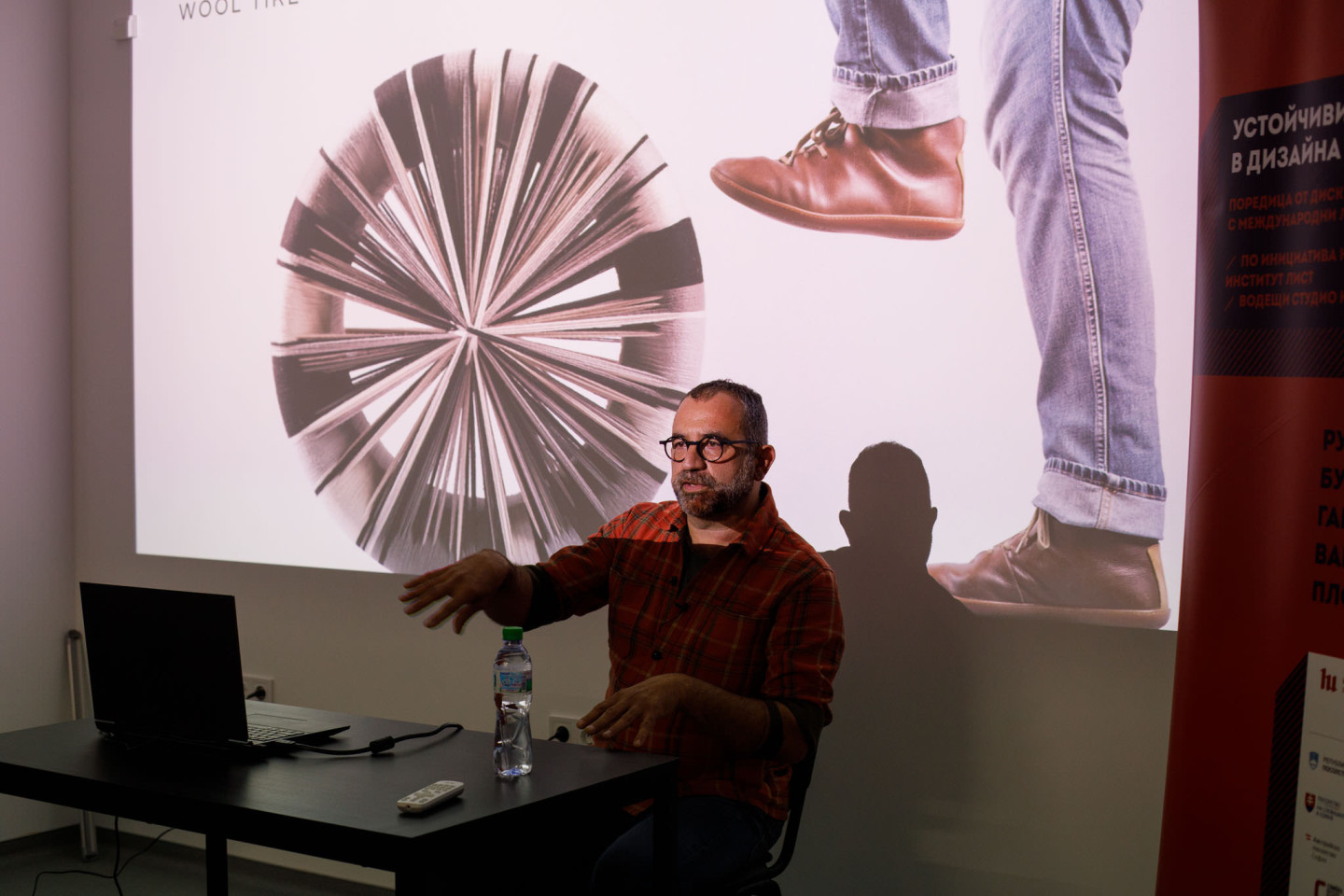“Sustainable practices in design and fashion” was a series of discussions and presentations in five Bulgarian cities during 2022. The discussions introduced the audience to a variety of practices that articulate an important change in the industry for greener production and nutrition. Combining science, design, technology and media, they offered new, closer to nature models for the use of raw materials.
Outcomes
The events were on the initiative of the Liszt Institute – Hungarian Cultural Institute in Sofia, in partnership with Studio Komplekt – organizers of the major design event in Bulgaria, the Melba Design Festival in Sofia – as curators and moderators of the discussions.
Each of the selected Bulgarian cities hosted a discussion on sustainability with two guest speakers from Europe, as well as an exhibition with 24 representations of sustainable fashion and design brands from the Visegrad countries. The speakers were designers, communication managers, directors, etc. who prepared presentations about their work and way of being sustainable in their very field. After the presentations the guest lecturers had discussions with the audience. The project reached the original goals, the audience was delighted that they have the chance to meet foreign designers.
The participants – both professionals and consumers – who attended to presentations and discussions had the opportunity to become acquainted to good practices in the field of sustainable design in other EU countries, as well as to establish direct contacts with designers from abroad and their fellow designers from Bulgaria. The impact was indirectly measured by the questions they posed during the discussions and the discussions after the events.
The aim of the project was to deliver eco-friendly attitude, sustainable-consciousness into the societies outside of the Capital. In most of the cities students from the local high schools and universities attended. The project concluded that the attitude of younger generations towards the topic of sustainability is different from their elder citizen-fellows, and their questions are usually associated with the “how” and not the “why”. These findings suggest us that the Bulgarian younger generations are already embraced the idea of the importance of sustainability, but they need the support to change the routines and believes from the past.
The project contributed not only to the knowledge of the audience but to the recognition, network and skills of the main local partner, Studio Komplekt that was find to have an important outcome as well, since they were the only Bulgarian organization that deals with contemporary design in that scale.
Challenges and Learnings
While project went as planned for the most part, there were a few challenges related to the project timeline and availability of designers. The project reported that in future editions, they will also take into consideration streaming and recording the presentations in order to reach a bigger audience. Audience engagement was also reported to be more difficult in the countryside.
The Project "Sustainable Practices in Design and Fashion" was a unique opportunity to bring to Bulgaria two Portuguese designers, whose work combines traditional craftsmanship, an approach of closeness to the sources and to their customers, and innovative design. They were able to share their experiences, discuss their progress in their respective fields, and convey a positive message, that it is indeed possible to have sustainable, ethical and profitable practices in the design industry.
Anaísa Gordino, Director of Institute Camoes Bulgaria
We, as a small cultural organisation focussed on design and creativity, are thankful for the opportunity to be able to present 10 creatives from Europe working on various design spheres to the Bulgarian audience outside of the capital. This gave us the opportunity to widen our network of designers and creatives working on the topic of sustainability in design and fashion and to plan new interesting projects on this topic in our future activities. The project made it possible, together with all partnering institutions, to introduce the topic of sustainability to a wider audience and to articulate the need for change in production and consumption through very open and inclusive events and communication materials.
Studio Komplekt, Bulgaria


